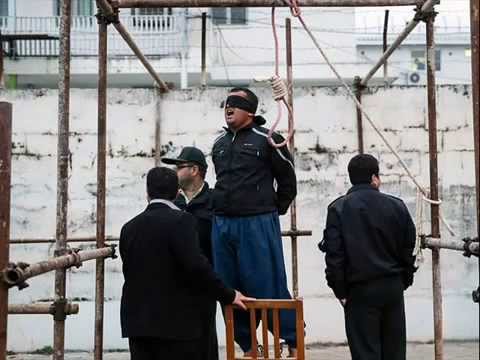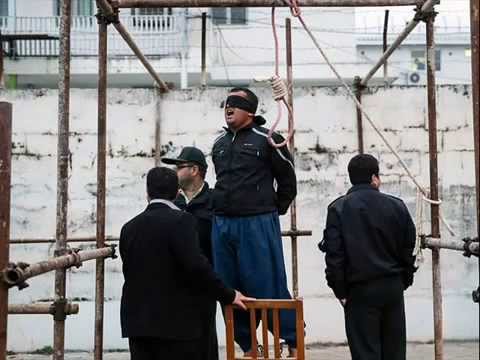
wikimedia
According to a report by the UN Special Rapporteur on human rights in Iran, Ahmed Shaheed, prepared for the Human Rights Council (HRC) of the UN, at least 966 people were executed in Iran in the past year. This is a record number of executions since 1989: then more than 1.5 thousand people were put to death. For comparison: ten times fewer people had been executed in the country in 2005, and twice as less in 2010. The majority of those executed in Iran were sentenced to death for crimes related to drug trafficking. According to Mr Shahid’s report, the number of executions in Iran grew in the first half of last year, reaching a peak - 136 executed this month - in June.
Iran, along with China and Saudi Arabia, is one of the countries with the highest number of death sentences. According to the latest report of the international organization Amnesty International, at least 607 people were executed in 2014 in total (does not include the number of penalties in China, where, according to Amnesty International, the servants of the law executed more people than in all other countries). Excluding China, the largest number of executions in 2014 falls on Iran, Iraq and Saudi Arabia: 72% of all officially recorded executions were committed in those countries. According to official figures, 289 people were executed in Iran in 2014. At the same time, according to the organization, a few hundred executions without official recognition took place in the country.
Mr. Shahid's report as a whole is dedicated to the human rights situation in Iran. In the report, he concludes that "attacks on freedom of speech and belief have intensified" in the country in the past year: according to him, Iranian prisons keep hundreds of Iranian journalists, bloggers and activists.
Ahmed Shaheed is a Maldivian diplomat, former foreign minister of the Maldives. In 2011, he was appointed UN Special Rapporteur on the human rights situation in Iran. The authorities regularly reject his conclusions, and he has no access to Iran.
Earlier in March this year, the Iranian court has sentenced to death a businessman Babak Zanjani and his two accomplices, reported Reuters referring to the statement made by the representative of the judiciary of Iran Gholam-Hossein Mohseni-Eje'i.
The court found them guilty of "spreading corruption on earth" and chose the death penalty against them. In addition, they were obliged to return the funds embezzled from the state National Iranian Oil Company. Zanjani and two other convicts can appeal the decision.
Zanjani was arrested in December 2013 after 12 Iranian deputies sent a letter with an appeal to investigate the financial activities of the businessman in the country's government.
He was accused of hiding $ 1.9 billion in revenue from the sale of oil, which passed through his company. Earlier, Zanjani was blacklisted in US and the EU for assistance to the Government of Iran and a number of Iranian companies in evading the oil embargo against Iran.
As reported by the BBC, Zanjani estimated his fortune at $ 13, 5 billion.
source: reuters.com
Iran, along with China and Saudi Arabia, is one of the countries with the highest number of death sentences. According to the latest report of the international organization Amnesty International, at least 607 people were executed in 2014 in total (does not include the number of penalties in China, where, according to Amnesty International, the servants of the law executed more people than in all other countries). Excluding China, the largest number of executions in 2014 falls on Iran, Iraq and Saudi Arabia: 72% of all officially recorded executions were committed in those countries. According to official figures, 289 people were executed in Iran in 2014. At the same time, according to the organization, a few hundred executions without official recognition took place in the country.
Mr. Shahid's report as a whole is dedicated to the human rights situation in Iran. In the report, he concludes that "attacks on freedom of speech and belief have intensified" in the country in the past year: according to him, Iranian prisons keep hundreds of Iranian journalists, bloggers and activists.
Ahmed Shaheed is a Maldivian diplomat, former foreign minister of the Maldives. In 2011, he was appointed UN Special Rapporteur on the human rights situation in Iran. The authorities regularly reject his conclusions, and he has no access to Iran.
Earlier in March this year, the Iranian court has sentenced to death a businessman Babak Zanjani and his two accomplices, reported Reuters referring to the statement made by the representative of the judiciary of Iran Gholam-Hossein Mohseni-Eje'i.
The court found them guilty of "spreading corruption on earth" and chose the death penalty against them. In addition, they were obliged to return the funds embezzled from the state National Iranian Oil Company. Zanjani and two other convicts can appeal the decision.
Zanjani was arrested in December 2013 after 12 Iranian deputies sent a letter with an appeal to investigate the financial activities of the businessman in the country's government.
He was accused of hiding $ 1.9 billion in revenue from the sale of oil, which passed through his company. Earlier, Zanjani was blacklisted in US and the EU for assistance to the Government of Iran and a number of Iranian companies in evading the oil embargo against Iran.
As reported by the BBC, Zanjani estimated his fortune at $ 13, 5 billion.
source: reuters.com


















